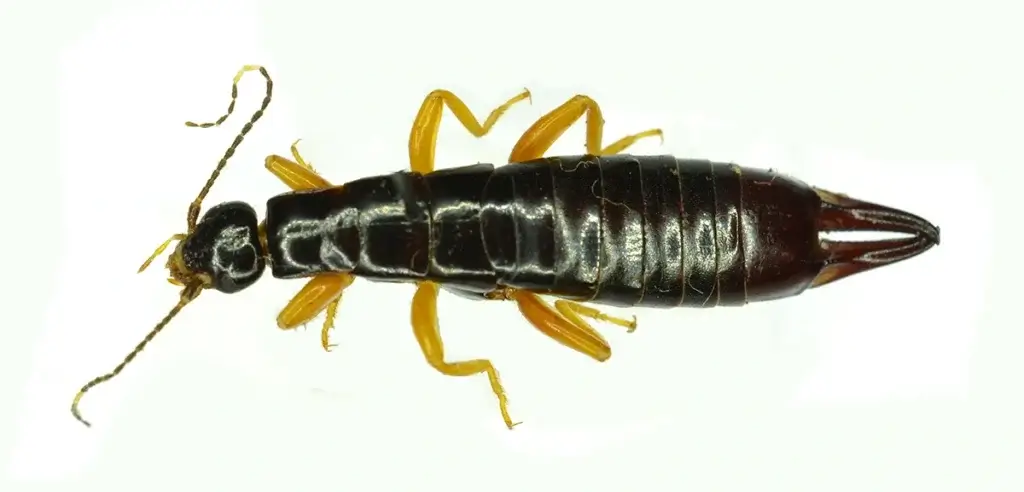
Debugging the Myth: Are Earwigs Dangerous?
There are few insect names that sound as spine-tingling as that of the earwig. Something about this creature's moniker just makes your skin crawl—but are earwigs dangerous, really?
Let’s find out.

Table of Contents
What Are Earwigs?
Earwigs are small nocturnal insects that are most-easily recognized by their distinctive pincer-like features at the end of their abdomens. They’re usually around 5 to 25 millimeters long, with thin, flat bodies.
They can be found in gardens, fields, and forests, and they often make their way into people's homes and other buildings, especially spaces that are dark and moist.
Earwig Myths
Earwigs have gained a pretty bad rap, but are earwigs dangerous, really? Let’s take a look at some of the biggest myths around these bugs.
1. Ear Invasion
This is the one you’ve probably heard the most: Earrings have a penchant for crawling into human ears, usually while someone’s sleeping. In reality, these incidents are extremely rare, and earwigs do not have any particular attraction to human ears. They may accidentally crawl into dark spaces, but the ear canal is not their idea of a dream home.
2. Dangerous Pinch
Another common myth thrown about in the “are earwigs dangerous” conversation is that they can deliver a painful or dangerous pinch with their pincers. While earwigs do use their cerci for defense, they are not harmful to humans. The pinch is generally too weak to cause any harm—and earwigs are not aggressive towards people.
3. Destructive Plant Pests
Some people believe that earwigs are one of the most destructive plant pests out there. The truth is that they may occasionally feed on plants and damage foliage, but they also play a beneficial role by consuming other insects, including pests harmful to gardens.
Are Earwigs Dangerous?
So, are earwigs dangerous? Contrary to popular belief, no, earwigs are not inherently dangerous to humans. Those scare looking pincers are primarily used for defense and mating among earwigs themselves. They are also not known to transmit diseases, and incidents of earwigs causing harm to individuals are extremely rare.
Controlling Earwig Populations
Though they aren’t dangerous, the presence of earwigs can still become an issue, especially in gardens. If you’d rather get them out of your hair (and far away from your ears), here are some tips.
Reducing Moisture
Earwigs are attracted to damp and moist environments, so try to address any moisture issues in your garden. That might mean improving drainage, avoiding overwatering, and regularly removing standing water.
Natural Predators
Introducing and attracting natural predators is an effective and natural way to eliminate earwig populations in and around your yard. Birds, toads, and predatory insects such as ground beetles are known to feed on earwigs, and creating a habitat that attracts these natural predators means keeping earwig populations in check.
Consult a Pest Control Professional
If you’re dealing with an earwig infestation that doesn’t seem to be going away, a pest control professional might be the answer. They can conduct a comprehensive inspection to get to know the extent of the earwig infestation, assessing key areas such as gardens, outdoor spaces, and potential entry points.
Based on the inspection findings, pest control experts can create customized treatment plans tailored to your needs. This may involve the strategic application of insecticides, baits, or other control methods.
Final Word: Are Earwigs Dangerous?
While their creepy appearance has left us asking for centuries, “are earwigs dangerous”, they are actually harmless to humans. Still, many people prefer to keep these pests out of their spaces, whether it’s to protect their gardens or just their peace of mind.
With over 50 years of dedicated service in Western North Carolina, the A-1 Pest Control exterminators are here for you! Simply choose a pest control plan that suits your needs or call us for assistance. Whether your property is in Hickory, Lenoir, Mooresville, Blowing Rock, or West Jefferson, give us a call at 828-481-9140 to arrange your first free pest inspection.

